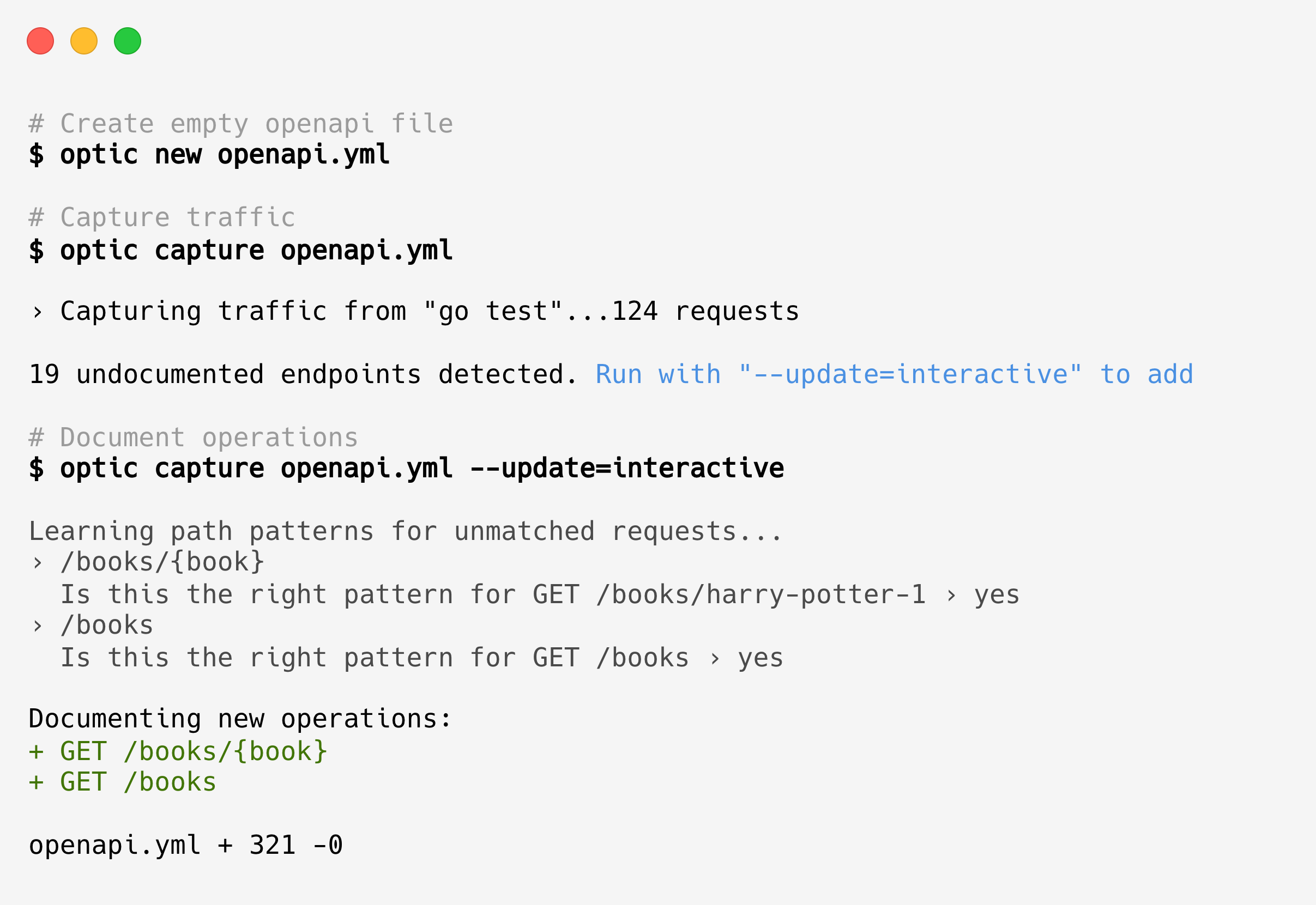Quickly document your APIs
Nobody should be writing massive OpenAPI files from scratch. Optic helps you document your API's current behavior using real network traffic. Traffic go in → accurate OpenAPI comes out.
✅ Make it easy for developers to write accurate OpenAPI
✅ Share accurate documentation with team + consumers
✅ Ensure your API is always working as-designed

Generate OpenAPI from test traffic
- Accurate Documentation
- Documenting existing APIs manually is error prone and time consuming. Optic makes the process easy and accurate.
- Every Change Tracked
- Run Optic in CI to make sure every change to your APIs gets documented
- Connect your Test Suites
- Use the traffic from your existing tests to document your API behavior.
- Maintainable OpenAPI
- Optic generates OpenAPI with $refs. Refactor it, add descriptions, etc. Optic is smart enough to never overwrite them.
5 minute demo
Install the CLI
npm install -g @useoptic/opticInit a capture config and empty OpenAPI spec
optic capture init openapi.ymlRun test traffic and learn endpoints
optic capture openapi.yml --update interactive// What people are saying //

Gary Poster Senior Director Engineering

Kostas Petrakis Lead API Engineer
"Brilliant! That's a whole lot of OpenAPI I don't need to write, and Optic is even making components to keep your OpenAPI Dry."

Phil Sturgeon Author, APIs you Won't Hate
"Anyone using (or wanting to use) OpenAPI to describe APIs should take a strong look at Optic. They truly get what it takes to maintain a great API at scale 🧑🍳🤌"

Marc-André Giroux API Lead
"Optic is a smart, simple, and straightforward solution to a real world problem every company faces"

Kin Lane API Evangelist
Document your APIs the easy way
Want to learn more? Read the open source documentation